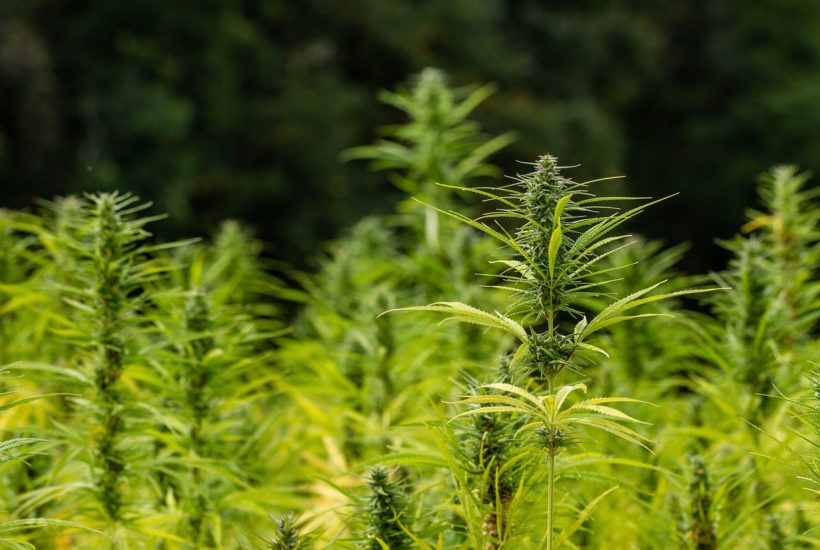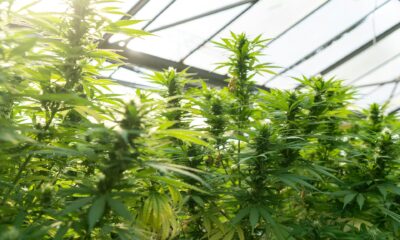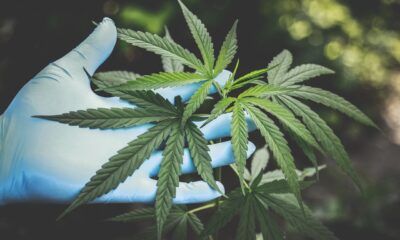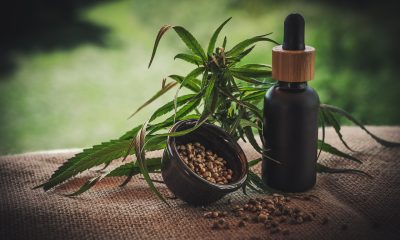Cannabis
Legal Cannabis Cultivation Begins in Argentina with a Public-Private Agreement
The project started last week, after Pampa Hemp signed a public-private agreement to produce and study the cultivation of cannabis. This project will allow the company to position itself as a leader in the incipient national cannabis industry, which has a wide development potential that Pampa Hemp and INTA expect to exploit in order to expand production in the country together with new producers.

A national company will start growing cannabis legally in conjunction with the National Institute of Agricultural Technology (INTA) to analyze the production of the herbaceous plant in the country for pharmacological purposes and to support the industry and domestic consumption.
The project takes place within the framework of Law 27,350 on the Medicinal Use of the Cannabis Plant and its derivatives, sanctioned in 2017 and regulated only at the end of 2020, which regulates the cultivation and use of the cannabis plant – in addition to the products that can be manufactured from it – for therapeutic purposes in Argentina.
Pampa Hemp is the name of the agro-science company in charge of the study together with INTA, which seeks to analyze the conditions of cannabis production at the national level in order to develop an industry in Argentina based on scientific knowledge of the sector.
Read the latest cannabis news in the world with the Hemp.im mobile app.
The public-private agreement was signed last week
The project started last week at INTA’s Experimental Station in Pergamino (EEA) after Pampa Hemp signed a public-private agreement to produce and study the cultivation of cannabis and its derivatives in Argentina based on “knowledge of high scientific-technological value”, as indicated by Ignacio Terrile, director of the EEA.
INTA’s premises cover 748 hectares with a series of facilities including laboratories, buildings, and greenhouses, as well as 15 Rural Development Agencies. There, as the Pampa Hemp website indicates, “more than 130 professionals from different specialties develop their research, experimentation and rural development activities based on sustainability, equity, and agri-food competitiveness”.
It is then in this Agricultural Experimental Station where the agri-science and cannabis technology company will develop its project, which they consider “fundamental for the development of the industry related to the production of cannabis derivatives in Argentina”.
In addition, this project will allow the company to position itself as a leader in the incipient national cannabis industry, which has a wide development potential that Pampa Hemp and INTA expect to exploit in order to expand production in the country together with new producers.
Sebastián Tedesco, the industrial designer and researcher who acts as the company’s technical coordinator, expressed himself along these lines: “We are very excited about this path that we are starting to follow together with local suppliers, experimenting and adapting our own resources in the search for generating a national-based ecosystem that will strengthen us as an industry and allow us to project ourselves to the world”.
The cultivation prototype, located in the INTA premises in Pergamino, “is carried out in high-tech greenhouses under the highest biosafety standards”, the company indicated.
For the time being, work will start on the basis of a genetic variety with a high content of CBD -Cannabidiol- the main component of the plant in hemp species, whose medical applications have a greater scope than plants in which THC -tetrahydrocannabinol- predominates, a component with greater psychoactive properties. This is why priority will be given to the use of species high in CBD rather than THC or any other hemp component.
Different cultivation techniques will be tested in order to, in principle, “develop protocols and a local production model for pharmaceutical-grade cannabis under a competitive system,” said Tedesco, who then added that the objective is to obtain the necessary certifications to be able to export to a series of international markets.
“Cannabis production chains are intensive in knowledge-based services, high-tech equipment and other dimensions of the Agrotech model,” said the technical coordinator of Pampa Hemp to explain the productive context in which they are inserted.
Thus, the company is now in the experimentation stage, to understand “the most efficient processes to achieve the best results in terms of volume and quality” under Argentine environmental conditions. After this, it is expected to scale up production “through the use of its own national genetics” with which Tedesco assures that Pampa Hemp has been working for years.
In addition, part of the purpose of the project is that the production chain for the development of cannabis and its derivatives for pharmacological purposes comes entirely from the national industry, which is expected to be able to provide for “the needs posed by the crop” expanding the national product without the need to import inputs and machinery.
From INTA, Natalia Prece, coordinator of the work team, summarized: “We are committed to incorporating knowledge and technologies with scientific support for the development of cannabis cultivation that will make it possible to obtain quality plant material, genetically stable and consistent over time.”
In addition, Pablo Fazio, partner of Tedesco and operational coordinator of the firm Pampa Hemp, pointed out that the company seeks to “contribute to the production of pharmaceutical-grade raw material that will result in medical and therapeutic applications” to contribute to the local demand and facilitate the supply of these national products “of quality, accessible, traceable and of proven safety, taking care of consumers, patients and users.”
__
(Featured image by NickyPe via Pixabay)
DISCLAIMER: This article was written by a third party contributor and does not reflect the opinion of Born2Invest, its management, staff or its associates. Please review our disclaimer for more information.
This article may include forward-looking statements. These forward-looking statements generally are identified by the words “believe,” “project,” “estimate,” “become,” “plan,” “will,” and similar expressions. These forward-looking statements involve known and unknown risks as well as uncertainties, including those discussed in the following cautionary statements and elsewhere in this article and on this site. Although the Company may believe that its expectations are based on reasonable assumptions, the actual results that the Company may achieve may differ materially from any forward-looking statements, which reflect the opinions of the management of the Company only as of the date hereof. Additionally, please make sure to read these important disclosures.
First published in El Cronista, a third-party contributor translated and adapted the article from the original. In case of discrepancy, the original will prevail.
Although we made reasonable efforts to provide accurate translations, some parts may be incorrect. Born2Invest assumes no responsibility for errors, omissions or ambiguities in the translations provided on this website. Any person or entity relying on translated content does so at their own risk. Born2Invest is not responsible for losses caused by such reliance on the accuracy or reliability of translated information. If you wish to report an error or inaccuracy in the translation, we encourage you to contact us.


































